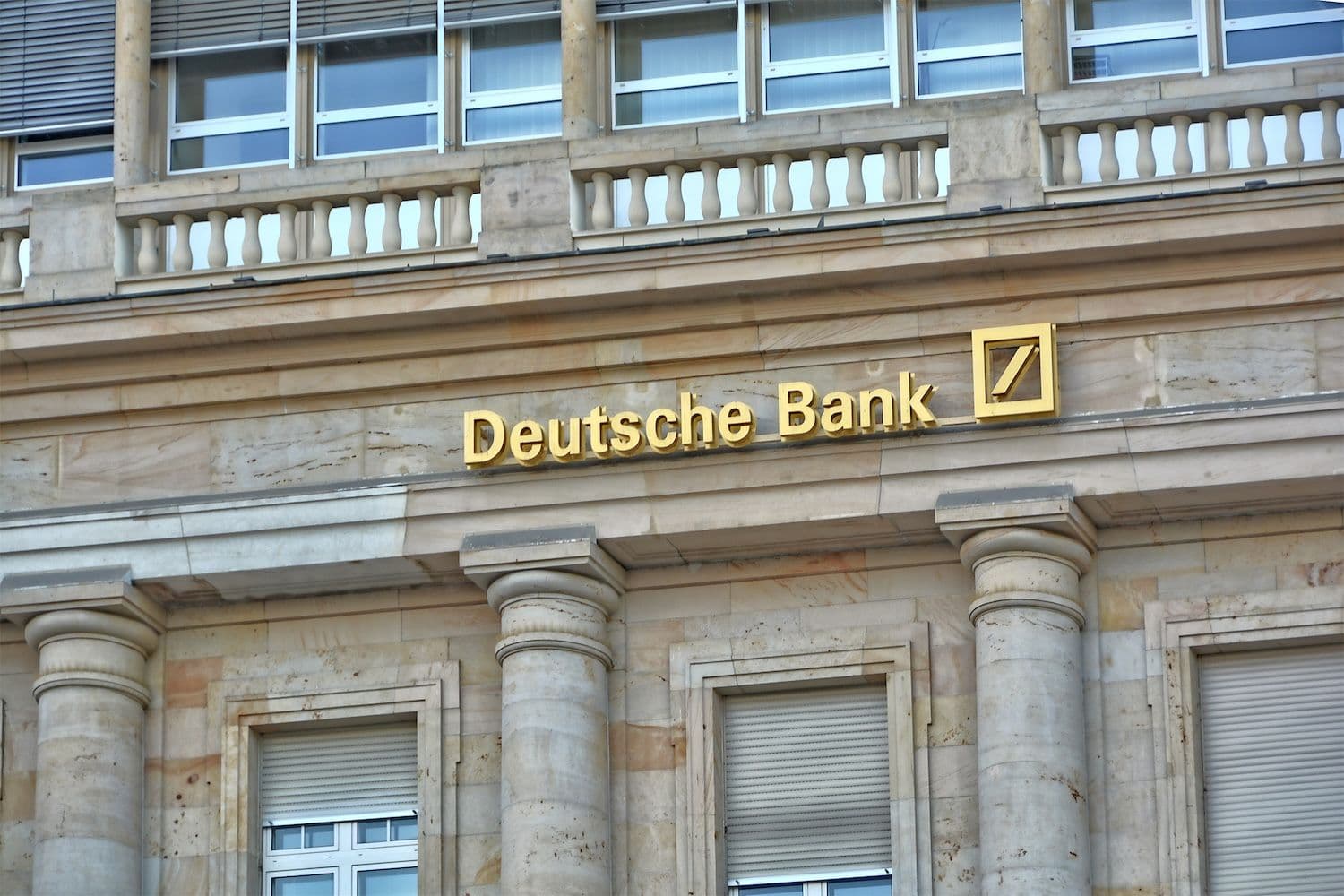Deutsche Bank, Germany's largest financial institution, is actively examining the launch of its own stablecoin or participation in an industry-wide digital currency initiative, according to internal assessments revealed by the bank's digital asset leadership. The exploration represents a significant step in the institution's blockchain integration strategy as traditional banks increasingly compete with cryptocurrency-native payment solutions.
What to Know:
- Deutsche Bank is considering either issuing a proprietary stablecoin or joining a collaborative industry project
- The bank is evaluating tokenized deposits to enhance payment efficiency and settlement speed
- Major U.S. banks including JPMorgan Chase and Citigroup are reportedly developing joint stablecoin initiatives
Sabih Behzad, Deutsche Bank's head of digital assets and currencies transformation, confirmed the bank's assessment of stablecoin opportunities in recent statements to Bloomberg. The evaluation encompasses both independent issuance and collaborative approaches with other financial institutions.
Regulatory Environment Drives Banking Innovation
The bank's digital currency exploration coincides with evolving regulatory frameworks across major markets. The European Union's Markets in Crypto-Assets regulation provides clearer guidelines for stablecoin operations, while anticipated U.S. legislation creates additional momentum for traditional bank adoption.
Deutsche Bank's research division has indicated that stablecoins are approaching mainstream acceptance, particularly under the current U.S. administration's cryptocurrency-friendly policies. This regulatory clarity has accelerated institutional interest in blockchain-based payment systems.
The bank's strategic positioning includes existing investments in cross-border payment infrastructure. Deutsche Bank has committed capital to Partior, a platform specializing in international payment solutions, and maintains active participation in Project Agorá, a central bank-supported initiative focused on wholesale tokenized payment systems.
American banking giants are pursuing similar strategies through potential joint ventures. JPMorgan Chase, Bank of America, Citigroup, and Wells Fargo are reportedly evaluating collaborative stablecoin projects designed to compete with decentralized digital currencies that operate outside traditional banking oversight.
Market Positioning and Strategic Implementation
Traditional financial institutions face mounting pressure to modernize payment infrastructure as digital-native competitors gain market share. Tokenized deposits offer banks the opportunity to enhance transaction speed while maintaining regulatory compliance and customer relationships built over decades of operation.
Deutsche Bank's approach reflects broader industry recognition that blockchain technology can improve settlement efficiency and reduce operational costs. The bank's evaluation process considers multiple implementation models, from serving as custodians for digital currency reserves to developing proprietary payment tokens.
The financial institution's digital asset strategy extends beyond stablecoin consideration to encompass comprehensive blockchain integration across payment processing and settlement operations.
This technological adoption aims to preserve competitive positioning against both traditional rivals and emerging fintech companies.
Banks pursuing digital currency initiatives must balance innovation with regulatory compliance and risk management requirements. Deutsche Bank's methodical evaluation process demonstrates institutional caution while acknowledging the necessity of technological advancement in modern banking operations.
Industry Transformation and Future Outlook
The convergence of traditional banking and decentralized finance technologies represents a fundamental shift in global financial infrastructure. Deutsche Bank's stablecoin evaluation illustrates how established institutions are adapting to maintain relevance in an increasingly digital economy.
Financial institutions worldwide are recognizing that blockchain-based solutions offer significant advantages in cross-border payments, settlement speed, and operational efficiency. The technology's adoption by major banks signals broader acceptance of digital currencies within mainstream financial services.
Deutsche Bank's strategic positioning through existing partnerships and technology investments demonstrates institutional commitment to digital transformation while maintaining traditional banking strengths.
Closing Thoughts
Deutsche Bank's exploration of stablecoins and tokenized deposits represents the institution's recognition that digital currency adoption is essential for competitive positioning in modern banking. The bank's methodical approach, combining proprietary development consideration with industry collaboration opportunities, reflects broader institutional adaptation to blockchain-based financial infrastructure.



